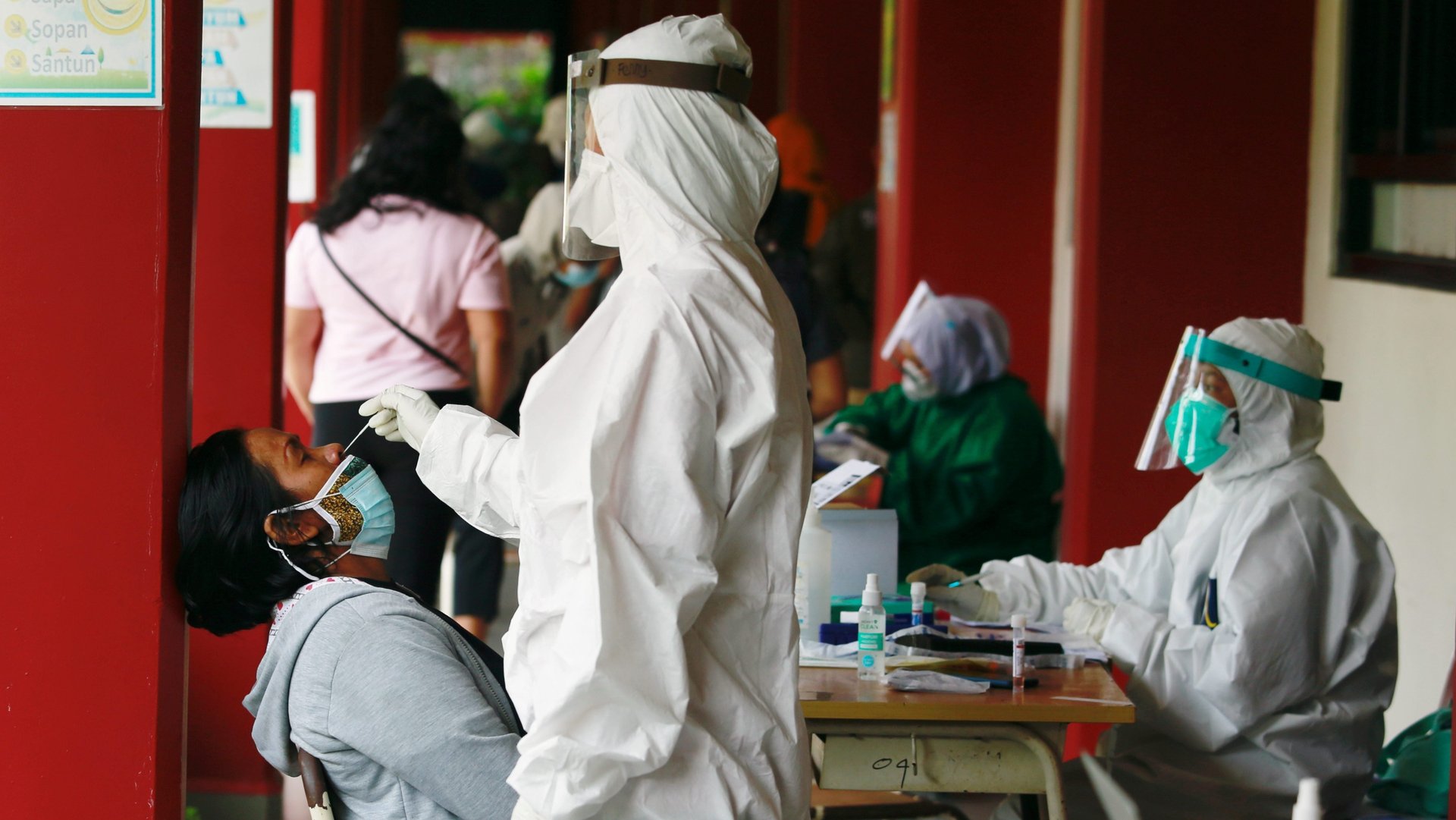Jakarta is seeing an echo of Delhi’s Covid-19 horrors
Just two months ago, Indonesia was coming to a gasping India’s aid. Now, Jakarta is experiencing a severe new wave of Covid-19 that has led oxygen prices to jump and the Red Cross to warn of a looming catastrophe.


Just two months ago, Indonesia was coming to a gasping India’s aid. Now, Jakarta is experiencing a severe new wave of Covid-19 that has led oxygen prices to jump and the Red Cross to warn of a looming catastrophe.
It’s a reminder of how frequently countries will lurch between relative stability and a health system in danger of collapse, particularly as more aggressive variants circulate and vaccination rates remain low in many places.
On July 1, Indonesia recorded nearly 25,000 new infections and 504 deaths, after recording less than 200 daily deaths a month ago, with a large share of new infections occurring in its populous capital.
Some 60% of 300 recent cases that were genome sequenced are the Delta strain, which was first detected in India. Nearly 60,000 people have died of the disease in Indonesia since the start of the pandemic.
Oxygen supplies
According to Reuters, the main hospitals in Jakarta are at 93% capacity, forcing patients to go to smaller hospitals where they have a chance of admission, even though those facilities may lack important life-saving equipment such as ventilators. In some cases, emergency care is being moved into tents outside hospital in order to make more room for Covid beds. Indonesians worry they may be just days away from the traumatic disasters that befell hospitals in India’s capital as oxygen ran out.
While the scenes of people lining up refill oxygen cylinders are reminiscent of Delhi’s second wave in April, considered one of the worse health system failures of the pandemic, the Indonesian government says supplies of oxygen are not running out. Health minister Budi Gunadi Sadikin said lessons have been learned from witnessing India’s crisis—Indonesia is redeploying 75% of industrial oxygen supplies to medical use over the next two weeks, the Guardian reported, as well as keeping tabs on stocks of concentrators.
Nevertheless in Jakarta, prices for cylinders have nearly tripled, according to Reuters, while requests for help tracking down oxygen are circulating on social media.
Broad restrictions are finally in place
This week, president Joko Widodo announced new social restrictions to take effect from tonight, including a ban on restaurant dining, shifting non-essential workers to working from home, and limiting travel. But health experts wish some of these steps had come earlier. The World Health Organization advised two weeks ago that Indonesia needed to implement large-scale social restrictions.
Many have been warning for weeks that Indonesia was heading for a new surge of infections after people skirted travel restrictions for Eid, a major homecoming occasion, and then returned to the cities where they work. In India too, cases surged in the wake of a major Hindu festival being allowed to go ahead, bringing millions of people together from across the country in very close quarters.
At the beginning of June, two University of Melbourne professors wrote that Indonesia was on the cusp of becoming a Covid-19 hot spot after those travels. Daily cases more than doubled between the middle and the end of May, to more than 6,500. If they doubled again in the next two weeks, the professors said, they would reach a level at which Jakarta hospitals had found themselves overburdened during an earlier wave.
Indonesia’s vaccination program
Indonesia is battling the highly transmissible Delta variant while its vaccination rates remain low, though it moved quickly to procure millions of doses from China in January.
It has only so far fully vaccinated 14 million of its population of 270 million, while about 16 million people are partly vaccinated. But another issue is that the shot from Chinese biotech firm Sinovac, which counts for nearly 90% of doses, has an efficacy rate that hovers at just over 50%. It’s not clear yet whether even that level is maintained with the Delta strain, with early signs that vaccines are less effective against it compared with other strain. Several health workers who had received both doses of their vaccines fell ill anyway.
Indonesia today granted emergency authorization to the Moderna vaccine, and is due to receive 4 million doses via the World Health Organization’s Covax program. But it has also defended its reliance on China’s vaccines, saying it can’t procure the quantities it needs—more than 400 million doses to vaccinate 70% of its population—as quickly from other suppliers.